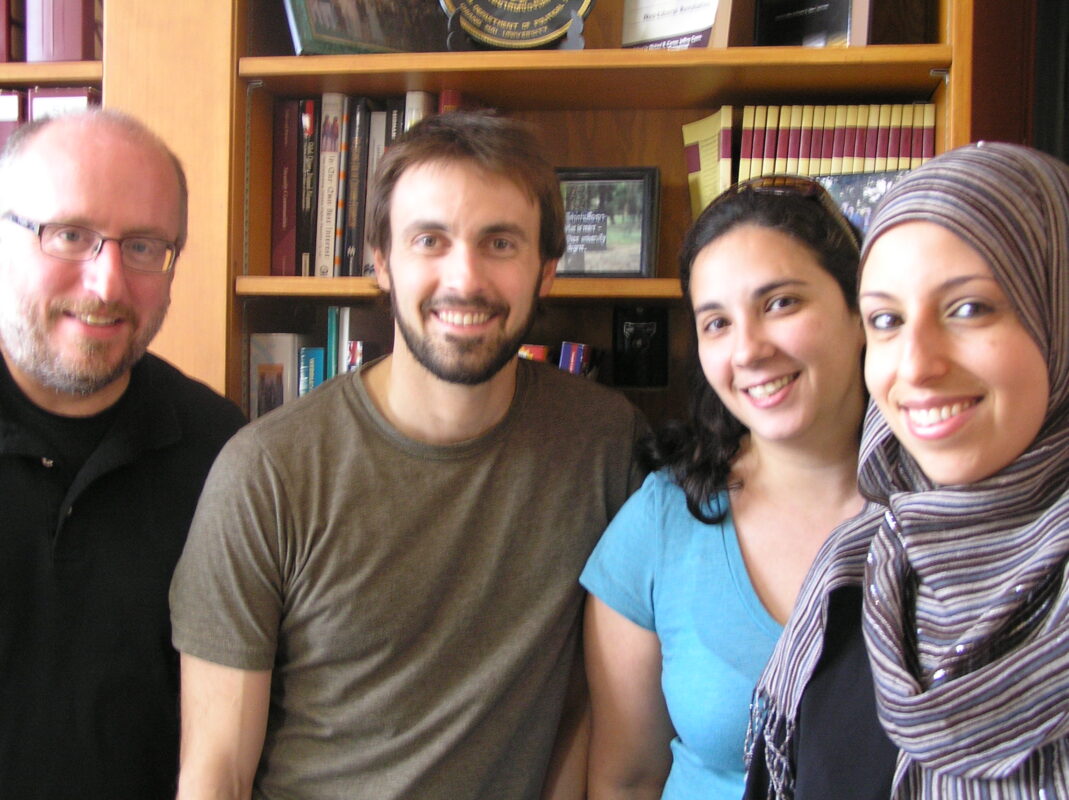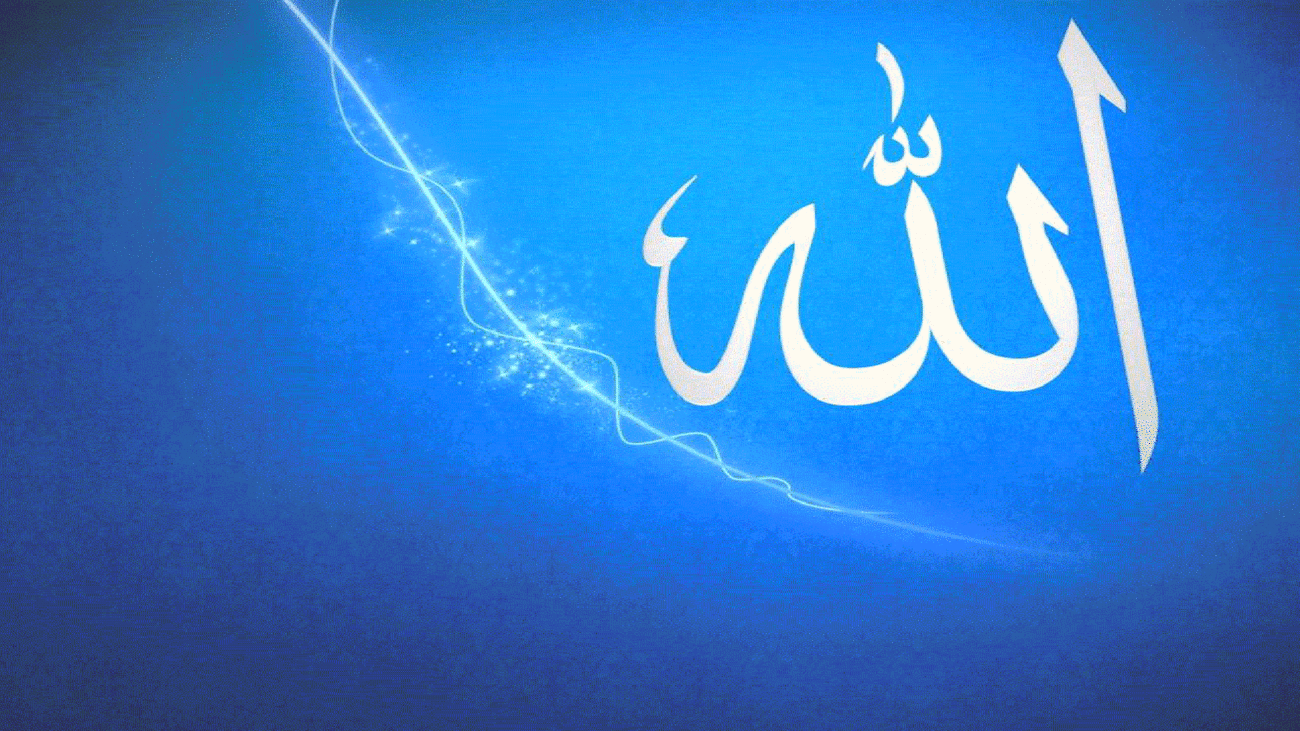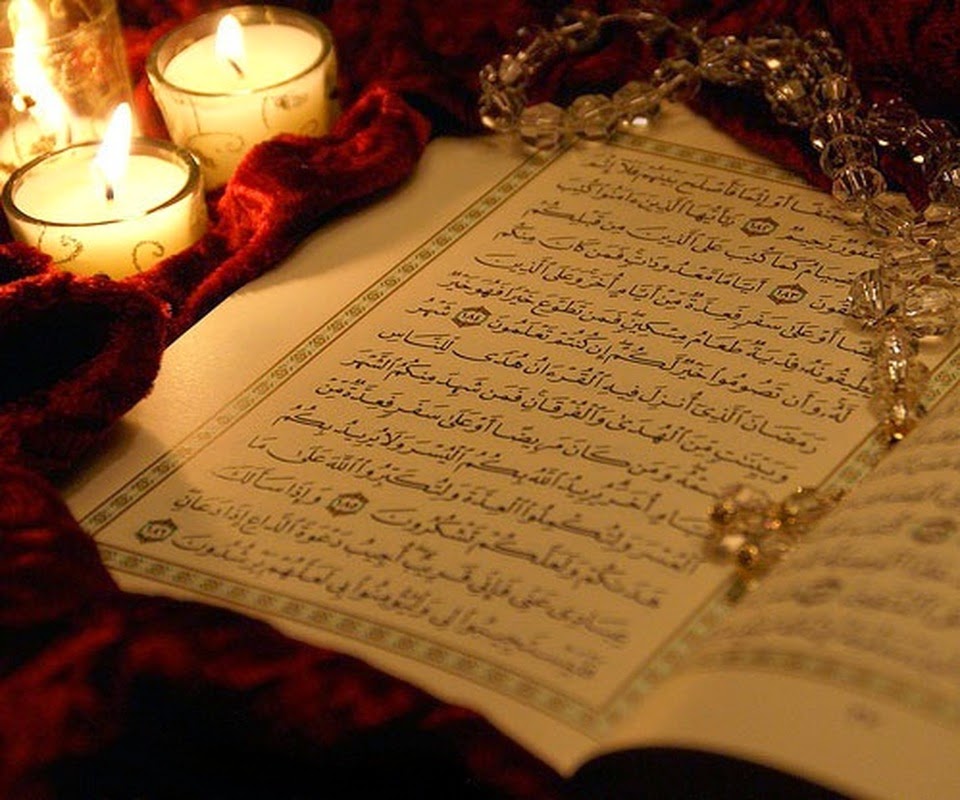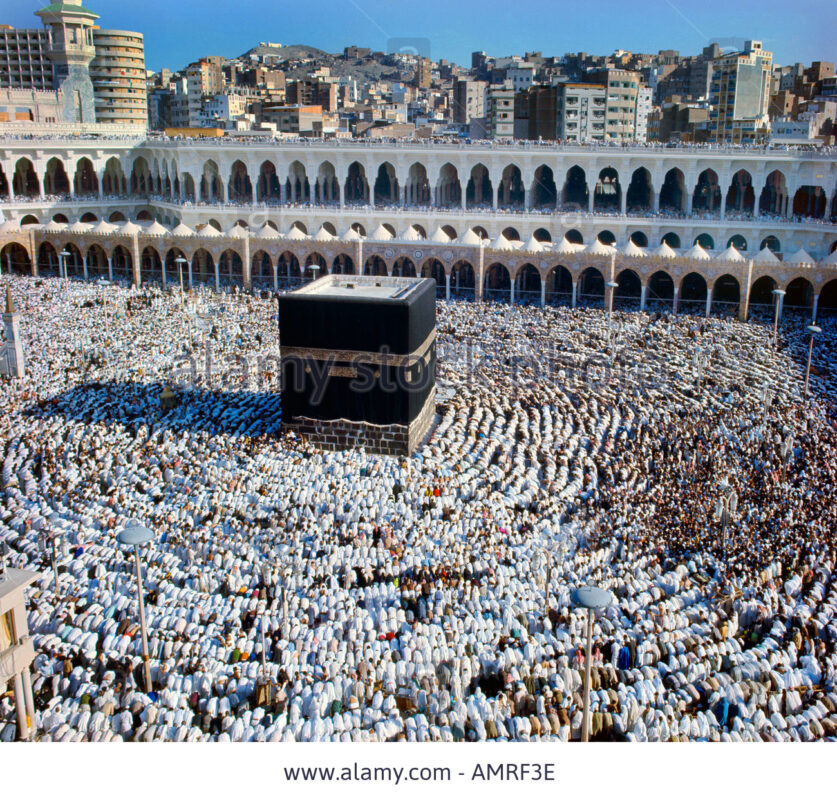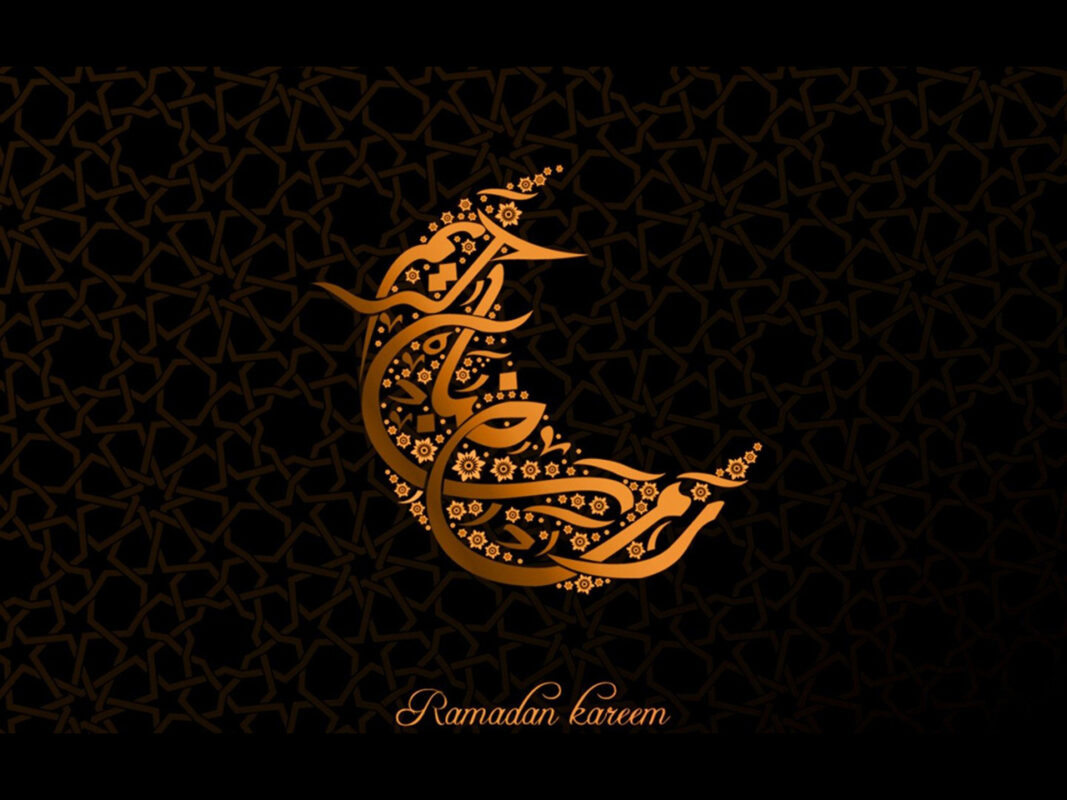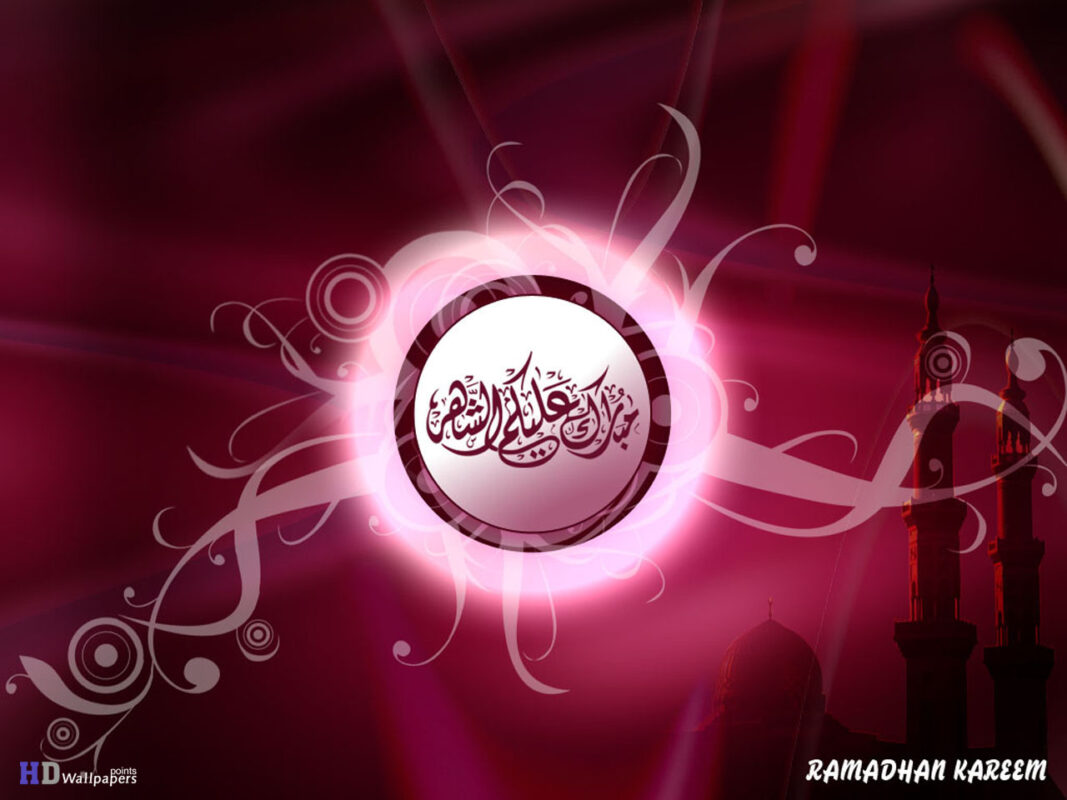Follow us we’ll show you a straight path and show you some matters which will prove that the Quran is God’s word:
FIRST – Because it is the pinnacle of linguistic perfection. The Arabs [of Jahiliyyah] were not accustomed to its form. Their linguistic abilities were hindered by the fact that its expression was worded in the shortest of forms without loss of clear meaning [bayan].
SECOND – Its wonderful structure was unique when it comes to the beginning of verses, their termination, and the places where one stops [when rehearsing it]. This is added to a refined way of presenting truth and the true knowledge of God [`irfan]. Its beautiful word and kind insinuation, easiness of construct and correctness of ordering made the minds of the purest of desert dwellers [al-Arba’] amazed and the understanding of the masters of the tongue struck. The wisdom behind this intended differentiation in which the Quran was revealed was to leave no doubt for those with wit [fiTna] or give them reason to steal [by producing something like it].
THIRD – Because the Quran has a record of things to come. They came to pass in accordance with the way God has intended. Allah said,
“You shall most certainly enter the Sacred Mosque [Mecca], if Allah pleases, in security, (some) having their heads shaved and (others) having their hair cut, you shall not fear.” (Surah “The Victory”, 48.27)
FOURTH – What it told about previous generations and the people of yore and it was known [to the people of Quraish] that [Mohammed] was but an illiterate who neither read nor wrote. He did not sit with teachers in schools, nor mixed with the learned. He was raised within a people who knew no book. They were naked [`arin] when it came to scientific inquiry [al-ulum al-`aqliyyah]. Allah said;
“Surely this Quran declares to the children of Israel most of what they differ in.” (Surah “The Ant”, 27.76).
FIFTH – What it revealed of the secrets of those who opposed it and what they used to plot. Their deceit was revealed to the messenger of God.
SIXTH – That it included knowledge from the smallest of particles to cosmic facts the Arabs did not know in general and neither did Mohammed (peace be upon him); most important, what it included about the science of Shari`ah and how to deduce laws, the ways to logical argumentation [al-hujaj al-`aqliyyah], the wisdom one derives from the stories of yore, the matters of the hereafter and the best of manners and behaviour.
SEVENTH – It is free of contradiction despite the fact that it is a large book which includes many facts and various arts.
“If it were from any other than Allah, they would have found in it many a discrepancy.” (Surah “The Women”, 4.82)
EIGHTH – It is a living miracle for it is read everywhere in uniformity, and God has promised to protect it. It is an established argument that, in contrast to other prophets whose miracles disappeared with them, the Quran is Mohammed’s eternal miracle.
NINTH – Those who read it are not tired of it. Those who hear it are not bothered by it. And those who rehearse it fall in love with it.
TENTH – It includes both proof and proven. Those who understand the meaning know how to derive proof and how to find religious dictum at the same time when they consider both the way it is read and the way it is understood. It is conciseness of words [balaghah] which proves its miraculous character. It is with meaning that one finds God’s order and His warning. Learning it by heart [hifdh] has been made easy. The fear that comes to the heart when hearing it and the humbleness that surrounds those reading it are beyond description.
The doctrine of the Quran’s inimitability (I’j?z al-Quran)
by Ola bint al-Shoubaki
‘And they say, “Why are not miracles sent down to him from his Lord?” Say: “The signs are only with All?h, and I am only a plain warner.” Is it not a sufficient miracle for them that We have sent down to you the Book which is recited to them? Verily, herein is a mercy and a reminder for a people who believe.’(29:50-51)
The miracles that were given to the prophets were such that they would have the greatest impact on that particular nation. The people at the time of Moses (peace be upon him) excelled in magic and sorcery, so he was given miracles which surpassed all their abilities, as a proof of his prophethood. The people at the time of Jesus (peace be upon him) excelled in healing and medicine, and he was accordingly given appropriate miracles. The people at the time of Muhammad (peace be upon him) were masters of language and eloquence – he was sent to them with the Quran.
The powerful effect it had on its listeners, who were skilled practitioners in the art of rhetoric, was unsurpassable. Few could help but be enchanted by it, including al-Wal?d ibn al-Mugh?ra, who exclaimed, ‘I swear by God, there is none amongst you who knows poetry as well as I do, nor can any compete with me in composition or rhetoric – not even in the poetry of jinns! And yet, I swear by God, Muhammad’s speech (i.e. the Quran) does not bear any similarity to anything I know, and I swear by God, the speech that he says is very sweet, and is adorned with beauty and charm. Its first part is fruitful, and its last part is abundant, and it conquers all other speech, and remains unconquered! It shatters and destroys all that has come before it!'[1]
Thus it was that the most eloquent and esteemed poet during the time of Muhammad (peace be upon him) was able to recognize the verbal power of the Quran, and its extraordinary composition. There were those, however, who opposed its message disparagingly, and aimed at reviling Muhammad (peace be upon him) and his claim to prophethood, and at challenging the divine nature of the Quran. They accused Muhammad (peace be upon him) of being a liar who forged the Quran, a soothsayer (k?hin), a poet (sh?’ir), a sorcerer (s?hir), and even a madman, possessed by jinn (majn?n), in an attempt to find an alternative explanation for his speech. They claimed that there was nothing miraculous about the Quran, and could imitate it if they so desired,
‘And when Our verses are recited to them, they say, “We have heard this! If we wish, we can say something similar to it. These are nothing but stories of old”.’ (8:31)
Accusations and Orientalism
Interestingly, the fourteen hundred year old accusations of the Arabs find their echo in contemporary Orientalism.[2] Amongst those who claimed that the Prophet (peace be upon him) was a poet, were the likes of Bell in the 1920s[3], Rodinson – who could only explain this ‘poem’ as a product of Muhammad’s (peace be upon him) unconscious mind – and Stobart who, writing in the 19th century maintained that the Quran could have been written by any Arab ‘acquainted with the general outline of Jewish history and of the traditions of his own country and possessed of some poetic fire and fancy’. All of these critics, however, failed to realise that whereas Arabic poetry was commonly distinguished by its specific literary features, such as the wazn, bahr, ‘ar?d and q?fiyah, which had to be adhered to even at the expense of grammar and semantics, the Quranic style displays no such established features. Therefore, the claims that Muhammad (peace be upon him) was merely a poet seem to be unfounded.
On a similar level were the claims of those Orientalists who suggested that the Quran was a result of Muhammad’s (peace be upon him) ‘wishful thinking’,[4] or a product of his ‘creative imagination’.[5] These were the exact words of Watt who, in the 1960s, applied modern methods of literary analysis to the text and concluded that, ‘What seems to a man to come from outside himself may actually come from his unconscious.’ However, the unique occurrence of any kind of ‘creative imagination’ producing a text the likes of which has never been equalled in recorded history, would seem to suggest the intervention of some force other than imagination.
Following the disbelievers’ claims that they could produce speech similar to the Quran, there emerged the central aspect in proving undoubtedly the veracity of Muhammad’s (peace be upon him) message and its divine authorship. If it could be shown that the Quran was inimitable by man and jinn alike, the accusations of the disbelievers[6] would be nullified. This would effectively eliminate the possibility of man being author, leaving only one other possible option for authorship – God. Thus, the significance of proving the Quran’s inimitability was manifest from the onset.
Quranic challenge
The Quranic challenge was posed – those who claimed that Muhammad (peace be upon him) forged the Quran were called upon to produce an entire Quran like it, this being gradually reduced to ten chapters similar to it.[7] When the Quraysh were unable to do this, the final challenge and promise was given;
‘And if you are in doubt as to what We have sent down to Our servant, then produce a chapter similar to it, if you are truthful. But if you do not do it – and of a surety you cannot do it – then fear the Fire whose fuel are men and stones, prepared for the disbelievers.’ (2:23-24)
Despite the pagan Arabs being masters of verbal eloquence, they were unable to rise to the challenge, an argument presented by many early Muslim writers. [Contemporary critics who question the divine authorship of the Quran have not, to date, produced any material which may lend proof to their claims.] Al-J?hiz, in his ‘Hujaj an-Nub?wwa’, commented that this was even ‘in spite of strong motivation on account of their tribal pride and their opposition to Islam, and in spite of the fact that meeting the challenge would have been easier for them than engaging the Muslims in battle as they did, only to lose eventually’.[8] It caused the Muslims to regard events as divine authentication of the veracity of the message of the Quran and Muhammad’s (peace be upon him) prophethood. By the early third/ninth century, the phenomenon of the Quran not being equalled in content or form came to be known as i’j?z (incapacitation), a term probably first used by Im?m Ahmad ibn Hanbal (d. 204 A.H.).[9] By the end of the century, it came to refer to the miraculous inimitability of the Quran.
It would be significant to note at this point that for the duration of the discussions which took place regarding the aspects of the Quranic i’j?z, it was asked whether the Torah and the Gospel(s), sharing with the Quran the quality of being revelation from God, also shared the quality of inimitability. It was argued by al-B?qill?n?[10] that they did not for a number of reasons;
Firstly, although they included some information regarding the unseen (akhb?r al-ghayb), they were not revealed in a miraculously eloquent structure or style, as was the Quran.
Secondly, God had not referred to them as being inimitable, as He did the Quran, and thirdly, no claim was made by the Prophets who brought them regarding their inimitability, as was made with the Quran. Az-Zarkash? and az-Zamakhshar? added that the arrangement of the Quran was also divinely inspired, unlike that of the Torah and the Gospel(s).
Therefore, the question of inimitability is posed with reference to the Quran alone, the affirmation of which would exalt its status over and above other revelation.
Following the recognition of its inimitability, there naturally arose the issue of what makes the Quran miraculous, and the nature of those aspects of it which cannot be imitated. According to the contemporary writer Kam?l Ab? D?b, the challenge was ambiguous for it ‘specified no particular qualities which those who were challenged were to match’.[11] Jurj?n? held a different view, however. He asked, ‘…is it possible that God ordered His Prophet (peace be upon him) to challenge the Arabs to produce something like it (the Quran), without them knowing the description of it by which, if producing (speech) according to that description, they will have produced something like it?'[12] This view was shared by many scholars of the Classical period, such as az-Zarkash?, who also held that it is inappropriate to pose a challenge while the challenged one is ignorant of that which his challenge entails.[13]
Responses by various Scholars
There were numerous responses put forward by various scholars of the Quranic Sciences on this issue, which included aspects such as the Quran’s eloquence, the arrangement of its chapters and verses, its stories of past, present and future nations and events,[14] its predictions, its laws, and its scientific facts. There is not a single definitive list of the aspects, and while, for example, the scholar Muhammad ibn Juzay al-Kalb? (d. 741 A.H.) divided the Quranic i’j?z into ten categories, as-Suy?t? classified its related sciences and arts under approximately 300 headings![15] Az-Zarkash? lists over a dozen, after which he concludes, ‘…the statement of those who have researched the issue thoroughly is that the i’j?z of the Quran is due to all of the previous factors simultaneously and not by any one of them only. For (the i’j?z) is in combining all of these facets…'[16] It has even been suggested that every category discussed in the Sciences of the Quran (‘Ul?m al-Quran) is in fact a facet of the i’j?z.[17]
A prominent Mutazilite of the period, however, by the name of al-Nazz?m (d. 232/846), propounded a concept which seems anomalous to Mutazilite beliefs – that of sarfa (‘aversion’). He maintained that the miracle of the Quran consisted in the divine prevention of Muhammad’s (peace be upon him) companions and followers from imitating it, by removing their competence and knowledge in this regard. Thus Nazz?m held that, were it not for this notion of sarfa, man would have had the capability and capacity to imitate the Quran. In doing so, he reduced the speech of God, the Creator, to the same level as the speech of man, the created. There necessarily has to be a distinction between the two, however, for the ‘difference between the speech of God and the speech of His creation is the difference between God and His creation.'[18]
By holding this position, Nazz?m inadvertently contradicted Mutazilite beliefs regarding man’s free will, and the Justice of God, for it would not be just for God to challenge man to exert his efforts in an activity for which He had removed their potential of ever successfully completing. The sarfa argument also rejected revelation as the miracle, but rather the sarfa itself, [19] a position which is undermined by the Qur’?n with the statement of the Almighty;
‘Say: If all of mankind and jinn gathered together to produce the like of the Qur’?n, the you could not produce the like thereof, even if they helped one another.’ (17:88).
Regarding this issue, as-Suy?t? comments, ‘…this verse mentions their incapability to (reproduce the Qur’?n), despite the fact that they still possess their faculties and powers. If (the i’j?z of the Qur’?n) were in the elimination of their power, there would be no benefit in their ‘gathering together’, for it would be the same as if dead corpses were gathered together. Since the Qur’?n challenges them to ‘gather together’, this clearly shows that the Qur’?n itself is the source of i’j?z’.[20]
The term i’j?z later developed to be primarily associated with the Quran’s ‘rhetorically unsurpassable and sublime style’.[21] This was due to the influence of early Islamic thinkers, such as al-J?hiz, who tended to emphasize the eloquence of the Qur’?n in their writings. [22] Many treatises were written on the literary i’j?z of the Quran, more than had ever appeared before in the field of religious writings, but as Wansborough points out, eloquence was peculiar to the Arabic language, hence there was no room for such analysis of the Torah or the Gospel(s) in previous times. As al-B?qill?n? noted, such a literary masterpiece could best be appreciated by the well-versed Arab linguist, and this is reflected in the statements of many Orientalists (such as Stobart who only read the translation of the Quran before making his assertion mentioned above) who had not mastered the Arab language enough to recognise and appreciate the various subtle techniques, styles and parallelisms employed by the language to emphasise intended meanings. Rather, they mistook it for ‘a wearisome jumble, crude and incondite’.[23] They seemingly overlooked the classical works of the likes of al-B?qill?n? and al-Khatt?b?, amongst others, who formulated intricate theories on the literary inimitability of the Quran. Al-Khatt?b? (d. 388/998) postulated that speech is made up of three basic elements. Firstly, words conveying meanings. Secondly, ideas subsisting in words, and thirdly, structure organizing them both. He deduced that the Quran is inimitable because it is the speech of al-‘?lim (the All-Knowing). Humans do not possess this attribute of infinite knowledge, and as such, do not know all the words of Arabic, all the ideas ingrained in each word, and all the varieties of structure.[24] Such is the difference between the speech of the Creator, and the speech of His creation. While He creates, His creation merely manipulates.
Another such example comes from Jurj?n?[25] (d. 470/1078) who, after systematically eliminating a number of different aspects in which the literary miracle could be manifest,[26] postulated a theory of nazm, in which he argued that arrangement and construction in a text creates different shades of meanings for individual words. It follows, therefore, that the best style is the one which chooses the most expressive words to connote the intended meaning and places them in the most effective arrangement. It was this that he referred to with his term nazm, and said that the Quran uses the best nazm which, when the Arabs heard it, they realised they were unable to match.
The above discussion presents an outline of some of the factors which contributed to the i’j?z of the Quran. As az-Zarkash? claimed, however, we cannot say that the i’j?z was in any one of them alone, and it was perhaps this inability to produce a single definition for it which led Ab? D?b to assert that the challenge was ambiguous. But this ‘ambiguity’, in my estimation, rather than being a weakness, was another testification of the inimitability, for it is relatively simpler to define the specific factors which form the speech of men. Thus, it was an impetus which drove the disbelievers to more aggression and hostility, for it is a characteristic of man that they fear the indefinable and the unknown.
The doctrine of the inimitability of the Quran is significant to the Islamic faith, for it is ultimate proof of divine revelation, without which accusations against its authenticity would have no end. It was a force which compelled a deeper study of the Quranic text, from all possible angles, leading to such assertions as, ‘It is meaningless to apply adjectives as ‘beautiful’ or ‘persuasive’ to the Quran; its flashing images and inexorable measures go directly to the brain and intoxicate it’.[27] And as the famous Islamic scholar of the 8th century, Ibn Taymiyyah, wrote, ‘Its very revelation is one of the most supernatural and extraordinary of acts, for it is the call (to the worship of All?h), and the proof (of the prophethood of Muhammad (peace be upon him), and the miracle (all in one)!'[28] That such speech, the like of which has never afterwards been composed, was brought to the Arabs by the illiterate Muhammad (peace be upon him), should dispel all doubts regarding its authorship.
The challenge of the Quran is open and valid until the end of time. That the challenge has not yet been met stands as a witness to the truth of its message, and is a constant reminder for mankind. It also contains guidance for whosoever may doubt its source as divine, in that they know what is needed to lend proof to their claims. But they also know the penalty of their doubts if they fail.
‘But if you do not do it – and of a surety you cannot do it – then fear the Fire whose fuel are men and stones, prepared for the disbelievers.’ (2:23-24)
Appendix
Present literary authorities have pointed out the following ways in which the Quranic style transcends the power of man and defies imitation: [29]
The form of the Quran reflects neither the sedentary softness of the townsmen nor the nomadic roughness of the Bedouins. It possesses in right meansure the sweetness of the former and the vigour of the latter.
The rhythms of the syllables are more sustained than in prose and less patterned than in poetry. The pauses come neither in prose form nor in the manner of poetry but with a harmonious and melodic flow.
The sentences are constructed in an elegant manner which uses the smallest number of words, without sounding too brief, to express ideas of utmost richness.
The Quranic words neither transgress by their banality nor by their extreme rarity, but are recognized as expressing admirable nobility.
The conciseness of expression attains such a striking clarity that the least learned Arabic-speaking person can understand the Quran without difficulty. At the same time, there is such a profundity, flexibility, inspiration and radiance in the Quran that it serves as the basis for the principles and rules of Islamic sciences and arts for theology and the juridical schools. Thus, it is almost impossible to express the ideas of the texts by only one interpretation, either in Arabic or in any other language, even with the greatest care.
There is a perfect blend between the two antagonistic powers of reason and emotion, intellect, and feeling. In the narrations, arguments, doctrines, laws and moral principles, the words have both persuasive teaching and emotive force. Throughout the whole Quran the speech maintains its surprising solemnity, power and majesty which nothing can disturb.
Some other aspects of the literary i’j?z are as follows:[30]
1. The placement of a particular word in perfect context, over its synonyms. The connotations given by the chosen words are better than those that would have been given by its synonyms.
2. The unique sentence structure and syntax, which does not follow any one pattern but varies throughout the Quran. Each style is unique, and its rhythm clear and resounding.
3. The use of different tenses (past vs. present; plural vs. singular, etc.) to give deeper meanings to a passage.
4. The pronunciation of a word matches its context. In other words, when discussing topics that are encouraging and bearing glad tidings, it uses words that are easy to pronounce and melodious to hear, and vice-versa.
5. The perfect combination of concisement and detail. When the subject requires elaboration, the Quran discusses the topic in detail, and when a short phrase suffices, it remains brief.
Source: islaam.com [External/non-QP]
Bibliography
Abu D?b, K., ‘Literary Criticism’, Abb?sid Belles Lettres, Cambridge History of Arabic Literature, ed. Ashtiany, J., Johnstone, T.M., Latham, J.D., Sergeant, R.B., and Smith, R., (Cambridge: Cambridge University Press, 1990).
Boullata, I.J., Literary structures of religious meaning in the Quran, (London: Curzon Press, 2000).
Ibn Hish?m, al-S?ra al-nabaw?yya, ed. Mustaf? al-Saqq?, Ibr?h?m al-Aby?r?, and ‘Abd al-H?fiz Shalab?, 2nd edn. (Cairo:1955)
Al-Jurj?n?, ‘Abd al-Q?hir, Asr?r al-Bal?gha f?’ilm al-Bay?n, ed. Rida, M.A., (Cairo: D?r al-Matb?’?t al-‘Arabiyya, n.d.)
________, Dal?’il al-I’j?z, ed. Shakir, M., (Cairo: Maktabat al-Khanaji, 1989).
Khalifa, M., The Sublime Quran and Orientalism, (New York: Longman, 1981).
Khatt?b?, ‘Bay?n I’j?z al-Quran’, Thalath ras?’il f? I’j?z al-Quran, ed. M. Khalafallah and M. Zaghlul, (Cairo: Dar al-Ma’arif, 1991).
Q?di, Abu ‘Amm?r Y?sir, An Introduction to the Sciences of the Quran, (Birmingham: Al-Hidaayah Publishing and Distribution, 2000)
Qatt?n, Mann?’, Mab?hith f? ‘ul?m al-Quran,
Al-Rumm?n?, Abu’l-Hasan ‘Ali b. ‘Isa, ‘al-Nukat f? I’j?z al-Quran’, Thalath ras?’il f? I’j?z al-Quran, ed. M. Khalafallah and M. Zaghlul, (Cairo: Dar al-Ma’arif, 1991).
Al-Suy?t?, Jal?l ad-D?n, al-Itq?n f? ‘ul?m al-Quran; with I’j?z al-Quran by al-B?qill?n?, (Beirut: D?r al-Ma’rifa, n.d.).
Wansborough, J., Quranic Studies: Sources and methods of scriptural interpretation, (London: Oxford University Press, 1977)
Az-Zarkash?, Badr al-D?n Muhammad b. ‘Abd All?h, al-Burh?n f? ‘ul?m al-Quran, ed. Muhammad Abu’l Fadl Ibr?hm, 4 vols., (Cairo: Dar al-Tur?th, n.d.)
Footnotes:
[1] Ibn Hish?m, al-S?ra al-nabaw?yya, pg 270-271
[2] Khalifa, pgs 10-17. All quotes in this section are taken from these pages.
[3] Bell described the Prophet (peace be upon him) as a poet, “but not of the ordinary Arab type”, because other poets did not compose their works on the same themes of religion, faith, and piety as he did.
[4] The view of Anderson in the 1960s.
[5] Similar to the disbeleivers’ accusations to the Prophet (peace be upon him), ‘Nay, they say: “These revelations are mixed up false dreams!” (21:5)
[6] Of both pagan Arab and Orientalist stock.
[7] The order in which the five tahadd? (challenge) verses were revealed, according to az-Zarkash? (v.2, p.110), Ibn Kath?r and others, is 52:33-34, 17:88, 11:13, 10:38, 2:23-24. Az-Zarkash?, however, holds that due to the wording of verse 11:13 (‘Say: Bring then ten forged chapters similar to it…’), at this time the challenge was to imitate the Qur’?n in prose and syntax, but not content, for the word ‘forged’ appears only in this verse. When the challenge was reduced to one chapter, it was to be matched in prose and content both.
[8] Boullata, pg 141
[9] Faqih?, Muhammad Han?f, Nadhariyya i’j?z al-Qur’?n ‘ind ‘Abd al-Q?hir al-Jurj?n?, Masters Diss., Cairo University, 1960, pg 13, as quoted in Q?d? pg 257.
[10] B?qill?n?, I’j?z al-Qur’?n, pg 609
[11] Abu D?b, ‘Literary Criticism’, pg 362
[12] Jurj?n?, Dal?’il al-i’j?z.
[13] Az-Zarkash?, al-Burh?n, pg 93
[14] This aspect is important because the information it contains regarding these issues could not possibly have been known by natural means to an illiterate man, such as Muhammad (peace be upon him).
[15] Khal?fa, pg 21 footnote.
[16] Az-Zarkash?, v.2, pg106
[17] Q?d?, pg 267.
[18] Abu ‘Abd ar-Rahm?n as-Sulam?, a famous T?bi’? (Successor), as quoted in Q?d?, pg 258.
[19] al-B?qill?n?, I’j?z al-Qur’?n, pg 43-44.
[20] As-Suy?t?, v.2, pg151. (A paraphrase from the Arabic).
[21] Boullata, pg 141.
[22] For more detailed lists on the literary i’j?z of the Qur’?n, see Appendix.
[23] Quoted from Khalifa, pg 20.
[24] Khatt?b?, ‘Bay?n I’j?z al-Qur’?n’
[25] See his ‘Dal?’il al-i’j?z’
[26] An example of this is in Jurj?n?’s illustration that the i’j?z could not merely be in the arrangement of vowels of the words, for this notion lead to attempts at composing verses which followed the same prototype as the existing Qur’?nic chapters. Such an attempt was made by Musaylamah who claimed to have met the Qur’?nic challenge with his verses, ‘Inn? a’tayn?ka’l jam?hir. Fasalli li rabbika wa h?jir. Inna sh?ni’aka huwa’l k?fir’ and, ‘wa’t-t?hin?ti tahnan’. (These were composed according to the protoptype of verses 108:1-3 and 100:1 of the Qur’?n).
[27] Khalifa, ch 2 endnote 19 (pg 24)
[28] Ibn Taymiyyah, Majm?’ al-Fat?w?, v.11, pg 324.
[29] Khalifa, pg 24.
[30] Q?d?, pg 268 (taken from Itr, Hasan Diy?q ad-D?n, al-Mu’jiza al-Kh?lidah, and al-Qatt?n, Mann?’, Mab?hith f? ‘Ul?m al-Qur’?n)

